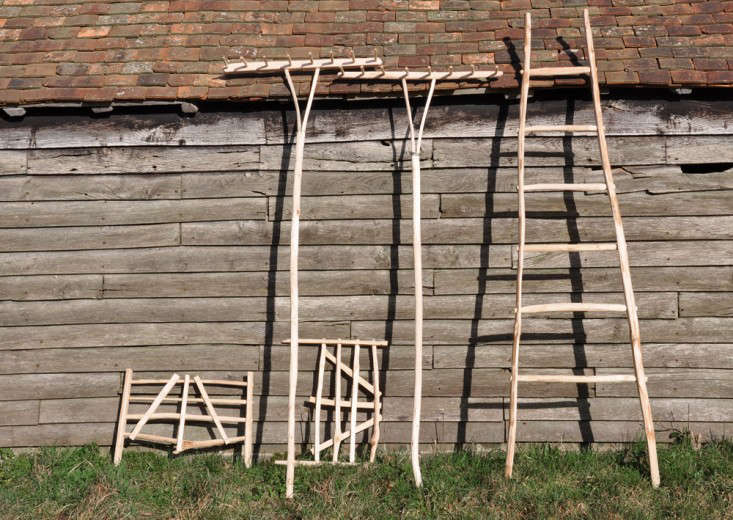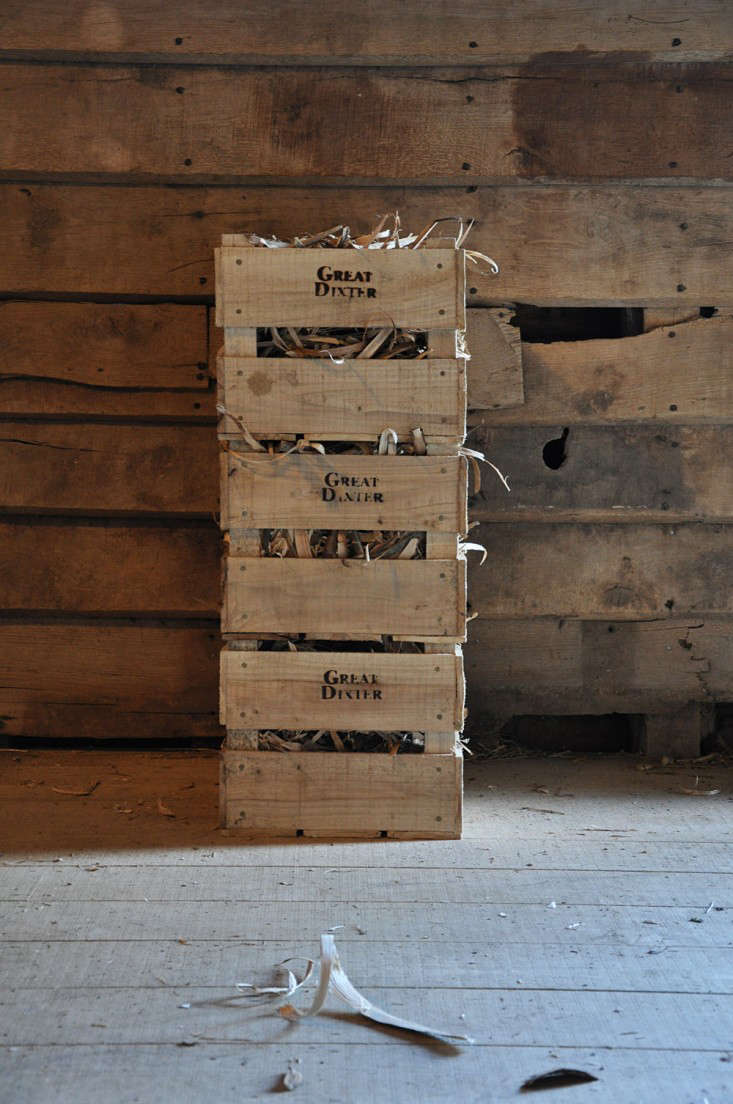Part of the joy of visiting Great Dixter in East Sussex is the fabric of the place. Beyond the shape and texture of the gardens are the buildings: ancient brick with timber for the house and acres of unpainted weatherboarding and tile for the barns. No longer falling down–but fully restored–the Great Barn is open to the public and is the workplace of a full-time woodsman. His wooden products are sold from the barn and in the shop, with the house on one side and the woods on the other: everything connects.
Photographs by Joe Rodriguez, except where noted.
Above: Rustic but not wobbly. Stools, narrow benches, wide benches, all made on the premises. The legs are chestnut and the seats are ash. Prices range between £25-£60 each; for further information and pricing, see Great Dixter Shop.
Above: The shop at Great Dixter may carry tea towels but it has the edge on other gift shops, with these homemade, handmade useful objects for the garden. From left: mini fence or Handmade Hurdle (£12) for propping up plants found spilling over the pathway. Hay rakes, best when made from wood: in this case with an ash head and chestnut handle. Ladders for hay lofts and book shelves. The Tea Towels (£6.50 apiece) are lovely too.
Above: A peek inside the Great Barn, with Simon Johnson a-whittling on the left. The estate woodland has traditionally provided sweet chestnut among other types of native wood, once used in the hop-drying process. This came to an end with World War II, and the coppiced wood has found a new use in the creation of the objects seen here, including ladders in a variety of heights. Two particularly tall chestnut ladders lean against the wall by some miniature hurdles. These sustainable products are for sale in the Great Dixter Shop.
Above: Sweet chestnut Hurdles, £22 for two.
Above: Branded apple crates, made from poplar. They can be bought with kindling inside (shown here) for £16 each; otherwise they are £14 each.,
Above: Equally stackable and stamped Dixter Seed Trays, £8 for two.
Above: A lovely thing to prop anywhere, the Great Dixter ladder. Individually priced, between £30-£90.
Above: Boot rack, for hanging wet wellies upside down. A two pair stand is priced at £25, with £5 per extra pair thereafter. This example costs £30.
Above: Main house, left, oast house and barns right. The informal proportions of Great Dixter spring from its farming origins, with the barns so close to the house that they now form a part of the gardens. Pointy-roofed oast houses like these are a common sight around East Sussex and Kent, a reminder of the former importance of hops, used for the flavoring of beer. Photograph by Kendra Wilson.
For more, see “The English Gardener: A Night at Great Dixter.”
























Have a Question or Comment About This Post?
Join the conversation (8)